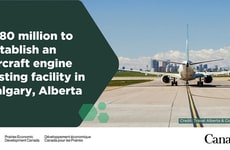
Taiwan is Taking Steps Towards Decarbonizing Aviation
Georgia Wray Norsten — April 26, 2025 — Eco
References: taipeitimes & reuters
Taiwan has taken its first significant step toward decarbonizing aviation by launching a nationwide trial of sustainable aviation fuel (SAF). In April 2025, the state-owned CPC Corporation imported 400 tons of SAF, while Formosa Petrochemical produced 5,500 tons locally using recycled cooking oil. These fuels were blended with conventional jet fuel and used in commercial flights operated by Taiwan’s top airlines.
The Civil Aviation Administration estimates the SAF rollout will reduce carbon emissions by approximately 15,000 tons in 2025 alone. With global aviation under pressure to meet net-zero targets, Taiwan’s adoption of SAF represents a meaningful step toward greener flight infrastructure. The government plans to mandate a 5% SAF blend by 2030. These early efforts could help position the island as a regional hub for low-carbon aviation, especially if local SAF production scales. The project also advances national energy independence and innovation in biofuels.
Image Credit: Taipei Times
The Civil Aviation Administration estimates the SAF rollout will reduce carbon emissions by approximately 15,000 tons in 2025 alone. With global aviation under pressure to meet net-zero targets, Taiwan’s adoption of SAF represents a meaningful step toward greener flight infrastructure. The government plans to mandate a 5% SAF blend by 2030. These early efforts could help position the island as a regional hub for low-carbon aviation, especially if local SAF production scales. The project also advances national energy independence and innovation in biofuels.
Image Credit: Taipei Times
Trend Themes
1. Sustainable Aviation Fuel Rollout - The introduction of SAF blending by Taiwanese airlines represents a pioneering stride towards carbon-neutral aviation infrastructure.
2. Biofuel Production Innovation - Formosa Petrochemical's use of recycled cooking oil for SAF highlights new pathways for waste-to-energy conversion in the fuel industry.
3. Decarbonization Initiatives Across Aviation - With increasing emphasis on SAF, Taiwan positions itself as a leader in the shift toward decarbonized global aviation standards.
Industry Implications
1. Aviation Industry - The aviation sector is undergoing transformation as sustainable fuel technologies start to redefine conventional energy resources for air travel.
2. Biofuel Industry - Innovative biofuel production methods, like reutilizing cooking oil, are becoming pivotal to energy diversification and sustainability goals.
3. Renewable Energy Sector - The burgeoning demand for SAF heralds significant expansions within the renewable energy landscape, influencing future energy security policies.
6.4
Score
Popularity
Activity
Freshness
























